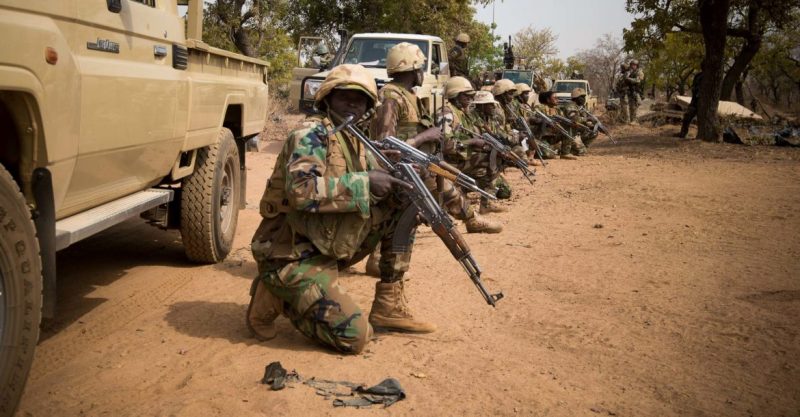The death toll from Thursday’s attack by rebel fighters on a Niger army base has risen to at least 89, security sources said, surpassing a raid last month that killed 71 soldiers as the deadliest against Nigerien forces in years.
The government said on Thursday that 25 soldiers were killed, according to a provisional death toll, adding that it had successfully repelled the attack in the western town of Chinagodrar by assailants on motorcycles and other vehicles.
Four security sources told Reuters news agency that at least 89 members of Niger’s security forces killed in the attack were buried on Saturday in the capital, Niamey.
One of the sources said the actual death toll could be higher because a number of soldiers were buried immediately on Thursday in Chinagodrar.
Defence Minister Issoufou Katambe said an updated death toll would be announced after a national security council meeting on Sunday.
The Chinagodrar attack, coming a month after the raid in nearby Inates by fighters from an affiliate of the ISIL (ISIS) group that killed 71 soldiers, highlights the deteriorating security situation near Niger’s borders with Mali and Burkina Faso.
Attacks have risen fourfold over the past year in Niger, killing nearly 400 people, according to data from the Armed Conflict Location & Event Data Project, a non-profit research organisation, despite efforts by international forces to stop fighters linked to ISIL and al-Qaeda.
French fighter jets were scrambled on Thursday to scare off the attackers, France’s regional taskforce said, possibly averting an even heavier casualty count.
No group has yet claimed responsibility for the attack, but Katambe said on Friday that the army would launch a new offensive against armed groups.
Al Jazeera’s Ahmed Idris, reporting from the Nigerian capital Abuja, said the latest attack happened in an area that does not have a heavy security presence.
Read Also: Malta Gets New PM After Reporter Murder Outcry
“The countries in the Sahel region are vast and largely unmanned. These armed groups are getting bolder. They are having a field day,” Idris said.
“According to sources, the attack was carried by attackers who came from Mali. Many people in the region believe these kind of attacks will continue simply because the governments in the region do not have the manpower to deal with these fighters,” he added.
West Africa’s Sahel region, a semi-arid belt beneath the Sahara, has been in crisis since 2012, when ethnic Tuareg rebels and loosely aligned rebel fighters seized the northern two-thirds of Mali, forcing France to intervene to temporarily beat them back.
SOURCE: AL JAZEERA AND NEWS AGENCIES

